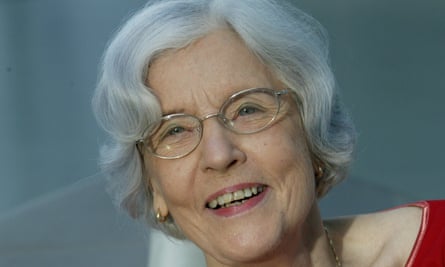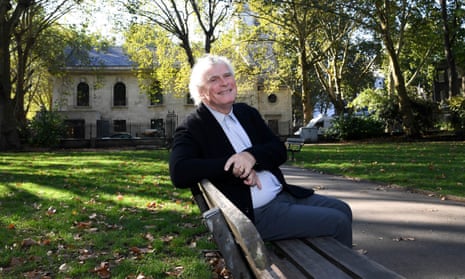The future of classical music depends on making orchestras and choruses more diverse, Sir Simon Rattle has said as he announced a new academy involving 10 east London boroughs.
Rattle said the initiative was the first step in trying to make the London Symphony Orchestra, of which he is the music director, look more like the city.
He said the key question was: “Why do our groups of classical musicians not look like London looks and what can we do about it?”
Rattle said orchestras and choruses were not diverse, an issue that needed to be addressed. “I think we all realise we have to start being proactive … I think our artform depends on making an orchestra like the city.”
The LSO East London Academy will open in spring 2019 and will aim to identify and develop the potential of talented people between the age of 11-18. It will be a bridge between secondary schools and conservatoires. Crucially it will be free, offering training that can normally cost as much as £3,000 a year.
Bindi McFarlane, an LSO violinist, said it was a positive step. “I’m quite sure that with a pathway like this, an opportunity like this, in the future the perceived elitism of classical music will fade away and increased diversity will inevitably appear.”
Rattle also announced details of the orchestra’s 2018/19 season, his second in charge after two decades in Berlin. He promised surprises, one of his favourites being a piece he premiered in Germany by a little-known French-American composer, Betsy Jolas, now 92.
Rattle said he had known Jolas’s name since his student days but her music had passed him by. About three years ago he was sat next to her at a dinner party, having been unaware she was still alive.
She made a big impression. “I thought: this woman is extraordinary, I bet her music is extraordinary too,” he said. “The thing that’s changed is I could go home that night and go to YouTube and find all those beautiful pieces. I wrote to her and said: ‘I’m so ashamed that it’s taken so long, but better late than never.’”
Jolas wrote A Little Summer Suite, which will get its UK premiere in February. “It is stunning that a composer as remarkable as Betsy Jolas … is completely unknown here and in Germany. We missed a trick here and we wonder: how many others?”

Rattle said it was not only lesser-known composers who slipped through the gaps. In the opening season concert on Sunday the LSO will perform Holst’s Egdon Heath. Rattle said it was “a raving masterpiece and very strange, exactly what you don’t expect from Holst … it is a piece I’ve known all my life but I’ve never heard in a concert. I thought if I’m going to hear it live, I’d better conduct it.”
Like all organisations in the arts, the LSO is concerned about how Brexit will play out. Rattle said there had already been a “certain amount of fall-off” when it came to auditioning musicians from around Europe.
“People aren’t necessarily applying because they don’t know what’s going to happen, and when people ask the question, the answer from all of us is: ‘We don’t know.’ It’s not particularly encouraging that the answer from the politicians is either ‘we don’t know’ or ‘it’s all going to be fine, just wait and see’.”
He said it was difficult to get politicians involved in any issue apart from Brexit. “The more politicians can realise that this [the arts] is one of the most extraordinary means of communication and healing in our cities, the better.
“Whatever happens in the next year we are going to have extraordinary problems to deal with and this is hopefully where the arts can help.”








